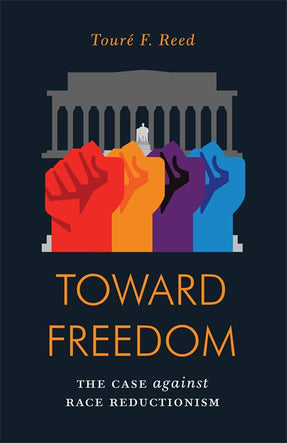Paperback
+ free ebook

+ free ebook
In the age of runaway inequality and Black Lives matter, there is an emerging consensus that our society has failed to redress racial disparities. But who is the culprit?
For many progressives, racial identities are the engine of American history, and by extension, contemporary politics. They, in short, want to separate race from class. While policymakers and pundits find an almost metaphysical racism, or the survival of an ancient and primordial tribalism at the heart of American life, these inequities are better understood when traced to more comprehensible forces: to the contradictions in access to New Deal era welfare programs, to the blinders imposed by the Cold War, to Ronald Reagan’s neoliberal assault on the half-century long Keynesian consensus. As Touré Reed argues in this rigorously constructed book, the road to a more just society for African Americans and everyone else, the fate of poor and working-class African Americans is inextricably linked to that of other poor and working-class Americans.
Praise for Not Alms but Opportunity
A first-rate treatment of its subject.--Journal of American History
Reed succeeds in making sense of the ideological and class perspectives that shaped the initiatives of the Urban League. . . . He also makes a compelling argument for a more holistic approach to any project designed to 'uplift the race.'--Journal of American Ethnic History
[An] excellent study of the National Urban League. . . . What distinguishes Reed's study from previous scholarship is not his critique of the economic and cultural biases of racial uplift but, rather, his detailed analysis of their effects.--U.S. Intellectual-History
Not Alms but Opportunity is at once a solid institutional history of the early decades of the National Urban League as well as a nuanced exploration of the very complicated politics of racial uplift. It is refreshing to see the ways that Reed gives the organization flesh and blood. In his hands the Urban League is seen as a totally human invention--altruistic in its determination to make a better way for black Americans while simultaneously riven by class distinctions and confining notions of 'proper behavior.'--Jonathan Holloway, author of Confronting the Veil: Abram Harris, E. Franklin Frazier, and Ralph Bunche, 1919-1941
Reed’s brilliantly argued and accessible book does not just marshal an impressive array of historical
evidence in building the brief against race reductionism. It offers a most timely analytical intervention that can give us much needed
perspective on the Sanders primary debacle of 2020.
A forceful critique of race reductionism
An intricate account of the conservative drift in liberal thinking and policy from the Great Depression to the current moment. Throughout, Reed examines how antiracist demands were continuously isolated from broader demands for economic reforms that would coalesce the interests of working-class Americans to endanger capital.
Reed’s study provides a compelling explanation for why successive governments have failed to address a durable racial inequality in the late 20th and 21st century.